
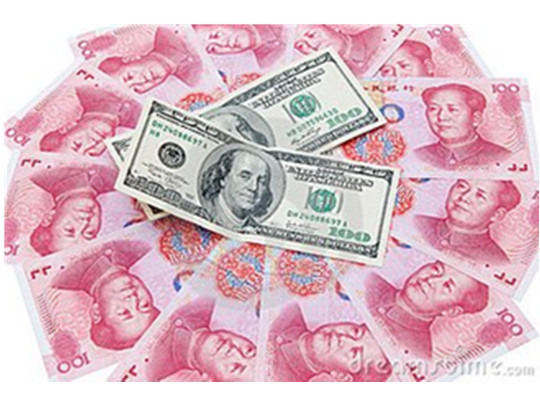
The Chinese yuan has huge room to improve its use in global systems partly due to increasing demand for yuan-denominated assets, a central bank official said Sunday. "Yuan's international status is far lower than the proportion of the Chinese economy in the global economy, which means enormous room for improvement in the currency's global use," Yin Yong, vice governor of the People's Bank of China, said at a forum held in Qingdao, east China's Shandong Province. The currency only accounts for around 1.8 percent of international clearing, 2 percent of foreign exchange (forex) transactions, and over 1 percent of forex reserves, Yin said. In contrast, China, the world's second largest economy, boasts more than 15 percent of global GDP and around 11 percent of trade. Thanks to solid economic growth, Yin believes there is demand for more yuan-denominated assets in financial markets and the real economy worldwide. Yin said the Belt and Road Initiative provides a significant opportunity for internationalization of the yuan. "In 55 countries along the Belt and Road, payment in yuan only makes up less than 5 percent of total trade volume." Along with opening up in China's capital market, yuan's global drive is moving forward in a steady pace. The International Monetary Fund in October 2016 officially added the yuan to its Special Drawing Rights, evidence of the currency's global potential.
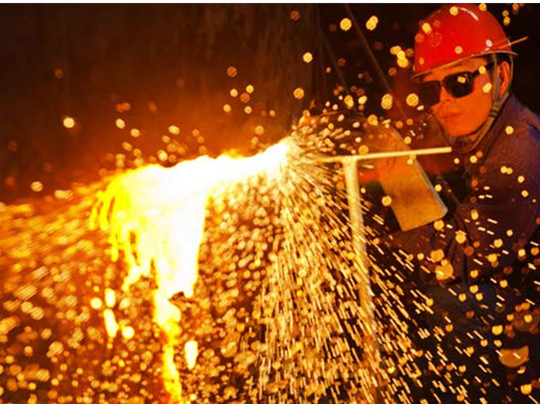
More industrial overcapacity will be cut to deepen supply-side reform for high-quality economic develop in 2018, People's Daily reports. China is expected to fulfill the goal proposed in 2016 to shut down 500 million tons of coal capacity and consolidate another 500 million tons into the hands of fewer but more efficient mine operators within three to five years in 2018. National Energy Administration proposed the country will cancel and delay about 150 million kilowatts of coal-fired power construction projects and cut 20 million kilowatts of outdated coal power generation capacity by 2020. Ministry of Industry and Information Technology also stated that strict inspections will be carried out in key provinces and a long-term mechanism to crack down on the production and sale of substandard steel products will be undertaken to complete the annual task of overcapacity cut in steel industry. China will use market-oriented legal measures to strengthen policy control and guide companies to cut overcapacity and outdated capacity to establish a long-term market clearing mechanism in order to improve the quality and structure of its industrial capacity in 2018, said He Lifeng, minister of the National Development and Reform Commission. Strategically, eradicating "zombie" companies will be on top of the agenda to cut off overcapacity and adjust industrial structure in the next stage, according to the report. Most "zombie" companies are of a certain scale, have a lot of employees and some even have a lot of debt burden, so more specific measures are needed to solve the problems brought by these companies and upgrade industrial structure, said Liu Jiejiao, researcher of Chinese Academy of Social Sciences' Institute of Industrial Economics. Meanwhile, we should turn to optimizing industrial capacity from merely cutting overall capacity and improve the capacity of advanced capacity with cutting-edge technology which is in accordance with the transformation and upgrading direction and green development concept, Liu added. The annual Central Economic Work Conference in December pledged that China will press ahead with supply-side structural reform in 2018 with more efforts to improve economic quality. In 2017, China has met the goal of reducing steel capacity by more than 50 million metric tons and cutting overproduction in other industries such as cement, as the country deepens industrial restructuring. Official data also show that the country's digital economy amounted to 22.58 trillion yuan ($3.43 trillion) in 2016, ranking second globally and accounting for around 30 percent of national GDP. Cutting industrial overcapacity was included as one of the top five tasks for reform of China's economic structure as early as 2015 at the Central Economic Work Conference. Besides cutting off outdated industrial capacity, the top authorities have also supported new industries, such as the mobile internet, cultural creative industry, the internet of things and high-end...
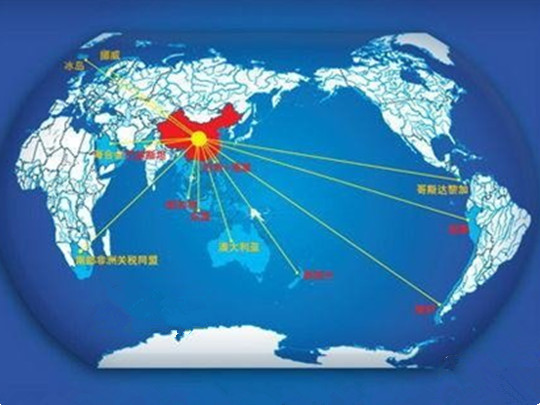
China has set a goal of building itself into a global powerhouse in international trade by 2035 through further reform and fine-tuning of trade structure, including upgrading the quality of goods and services consumed in the local market and improving the quality of two-way investment, the country's commerce minister said on Monday. To reach the long-term target, the Ministry of Commerce first has to further enhance China's role as a major global trading partner before 2020 and deploy more resources to maintain a steady growth in international trade, make efficient use of foreign investment and ensure Chinese companies invest overseas in an orderly way in 2018, according to Minister Zhong Shan. "Next year, China will continue to deepen the cooperation and partnership with economies related to the Belt and Road Initiative and host an international imports exhibition to further boost trade and stimulate investment," Zhong said. The ministry's other priorities in the next five years include further tapping regional trade growth engines, fostering new trade momentum in high-end products and services, and building up new bilateral and multilateral free trade protocols, he said. Meeting the moderate goal of being a major trade player by 2020 would demonstrate that China is sufficiently strong in many elements of global trading, but there is still some way to go for China to grow into a truly global trading powerhouse. Problems and challenges it may still face include things like labor costs, environmental issues, lack of core technology and trade protectionism, said Ma Yu, a senior researcher at the Chinese Academy of International Trade and Economic Cooperation. A country that is a global trade powerhouse needs to have many world-leading industries and a favorable investment and trading environment, with the support of preferential government policies, an advanced logistics network and sound infrastructure, Ma said. "Also the country has to be a firm proponent of multilateral economic cooperation and trading systems," he said. Ren Hongbin, director-general of the ministry's Department of Foreign Trade, said even though China is still confronting trade issues such as protectionism and outdated technologies in certain sectors, its perspective for next year will be promising, thanks to the recovering global economy and tangible results generated by supply-side structural reform. As the major driver and stabilizer of the global economy, China will push forward a new pattern of all-around opening-up to pursue mutual benefit with the rest of the world, according to a statement released after the Central Economic Work Conference concluded on Wednesday. The country will increase imports and cut import tariffs on some products to promote balanced trade, it said. China's foreign trade volume rose to 25.14 trillion yuan ($3.8 trillion) between January and November, which is a 15.6 percent increase in comparison with the same period the previous year, the General...
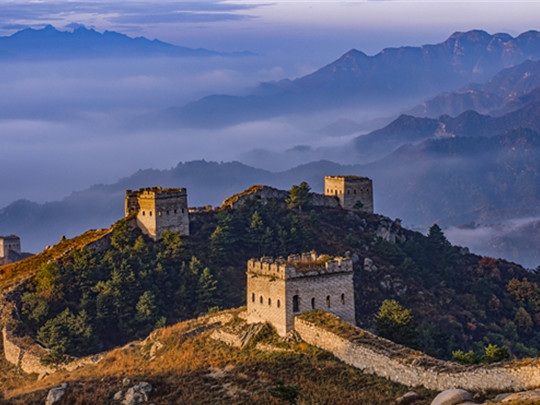
China's economic growth results are expected to remain stable not only in 2017 economic reports yet to be released but also in 2018, despite a slight decline in a major index measuring the expansion of the manufacturing sector in December, analysts said. While there is some variation in the forecast, analysts said the country's GDP growth may register up to 6.9 percent for 2017. The official manufacturing purchasing managers index, released on Sunday, dropped to 51.6 in December, compared with 51.8 in November, according to the National Bureau of Statistics. Still, the index remained comfortably above the 50-point mark that separates growth from contraction, with numbers above 50 indicating expansion. "The manufacturing sector is stable and improving, a trend that has become more entrenched," Zhao Qinghe, a senior NBS statistician, said in a statement. The annual average reading of the index for 2017 was 51.6, which is 1.3 points higher than in 2016. "The December reading dropped a little bit, but it still reached the annual average level, indicating that expansion of the manufacturing sector remains strong," Zhao said. As seen in PMI changes in 2017, the trend of an improving economy has become more obvious, said Chen Zhongtao, an analyst at China Logistics Information Center. "The PMI has remained above 51 and even exceeded 52 in September. The overall trend is stable, with only small monthly fluctuations," he said. Based on the average monthly reading of PMI, Chen said China's GDP growth could reach about 6.9 percent in 2017. Growth in the fourth quarter could reach 6.7 percent and the whole-year growth could be 6.8 percent, said Li Chao, an analyst at Huatai Securities. China achieved GDP growth of 6.9 percent for the first three-quarters. Analysts generally predicted that growth could dip in the fourth quarter as the effect of environmental protection measures and slowing property sales growth unfolded. Growth in China's services industry picked up in December, an official survey showed on Sunday, as the sector continued to show solid expansion. The NBS also said that China's official non manufacturing PMI rose to 55 in December, up from 54.8 in November. The services sector accounts for over half of China's economic growth and analysts said the strong non manufacturing sector expansion, together with the manufacturing expansion, contributes to the stable GDP growth this year. The non manufacturing index reading has remained above 54 in 2017 except in August. Qu Qing, an analyst at Hua Chuang Securities, said the construction sector has helped bolster the index, indicating that infrastructure investment remains stable, which will help boost overall economic growth in 2018. Despite its stable economic growth trend, China also faces some challenges, such as an increase in raw materials prices and rising corporate costs, said Chen of China Logistics Information Center.
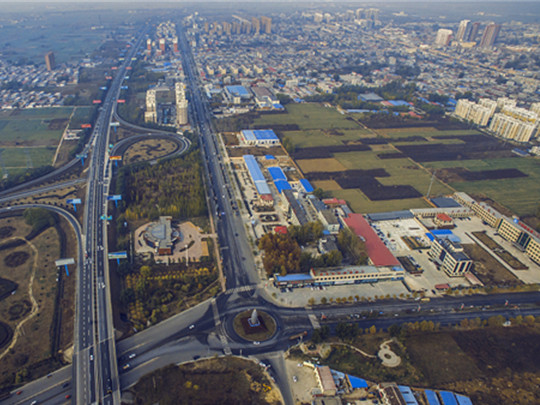
As the year 2017 draws to an end, let's take a look at 10 keywords for China's economy this year. 1 Xiongan New Area On April 1, the central government announced it would develop Xiongan New Area in North China’s Hebei province, about 100 kilometers southwest of downtown Beijing. It will be the third national special economic zone after Shenzhen Special Economic Zone and Shanghai Pudong New Area. According to a circular issued by the Communist Party of China (CPC) Central Committee and the State Council, the move will help phase out non-capital functions from Beijing, explore a new model of optimized development in densely-populated areas, and restructure the urban layout in the Beijing-Tianjin-Hebei region. The new area will cover around 100 square km initially and will be expanded to 200 square km in mid-term and about 2,000 square km in the long-term. 2 C919's maiden flight China's homegrown largest passenger jet C919 took to the sky on May 5. The orders for C919 reached 785 aircraft by Dec 6. 3 Real estate market China has carried out a series of measures to boost home rental market, and is building a long-term mechanism to maintain stability in the property market. In July, Chinese city Guangzhou announced move to provide tenants equal rights to educational resources as homeowners. In the same month, China's Ministry of Housing and Urban-Rural Development and other eight government departments issued a notice that said measures will be taken in cities with net population inflows, including increasing rental housing supplies and setting up a government-backed home rental service platform. In September, Beijing authorities announced a new rental policy to speed up development of home rental market. General Secretary of the Communist Party of China Central Committee Xi Jinping reiterated in his report to the 19th CPC National Congress that "houses are for living in", which has set the tone for China's housing development, and a variety of housing reforms and measures are expected to be rolled out over the next five years. In his report, Xi once again said that housing is not for speculation and the country will accelerate the building of a rental market in the country. China will move faster to put in place a housing system that ensures supply through multiple sources, provides housing support through multiple channels, and encourages both housing purchases and renting in 2018, according to a statement released after the annual Central Economic Work Conference. 4 AI guideline On May 27, AlphaGo, DeepMind's artificial intelligence Go-playing program, defeated world's top-ranked player Ke Jie for the third consecutive game between them. In July, the State Council unveiled a plan calling for developing technology, research and educational resources in AI to achieve major breakthroughs by 2025 and make China an AI innovation center by 2030. In December, the Ministry of Industry and Information Technology unveiled a three-year plan to boost the appl...

China's cabinet has ordered temporary adjustment of state regulations in Beijing as the country's capital opens its service sector wider to foreign investment. The move came after the central government approved a pilot program in June to ease market access for foreign investment in Beijing in such areas as science and technology, culture and education, financial services, business and travel, and health and medical services. A State Council document said authorities will adjust rules on administrative approvals and market access, including those on entertainment performances and venues, foreign-funded banks and foreign investment in civil aviation in Beijing. The changed rules will allow foreign investors to set up firms operating performance venues with no ownership restrictions. Foreign investment will also be permitted in air transport service sales agencies. China will push for nationwide implementation of a pre-establishment national treatment system as well as a negative list that determines where foreign participation is prohibited or limited, according to the Central Economic Work Conference, which concluded Wednesday. The negative list will become shorter, while laws and regulations on foreign investment will be improved, and protection of intellectual property rights will be enhanced, said a statement released after the annual tone-setting conference.
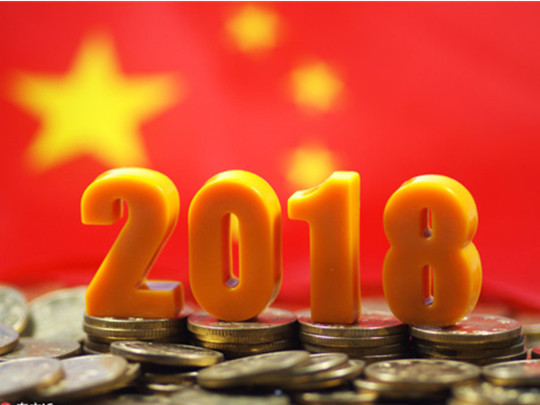
The Central Economic Work Conference opened Monday, as Chinese leaders began to review the country's economic performance in 2017 and make plans for 2018. While reviewing the economic work during the past five years, the meeting will focus on implementing decisions at the 19th National Congress of the Communist Party of China and making arrangements for economic tasks in 2018, with high-quality development as a fundamental requirement. Observers noted that the decisions to be made at the meeting will reflect China's new development concept featuring high-quality development. Curbing major risks, eradicating poverty and pollution control would be the "three tough battles" for 2018, with substantial progress expected. The economic agenda will focus on deepening supply-side reform, invigorating market participants, applying rural revitalization strategy, pushing coordinated rural-urban development and all-around opening up. The work in the next year will also be aimed at helping improve people's living standard, building a housing mechanism with lasting effects, and supplying more high-quality ecological products. China's GDP expanded 6.9 percent year on year in the first three quarters, above the government's target of around 6.5 percent for this year. The economy has shown improving structures with new economy contributing over 10 percent to the overall growth, and the growth rate of residents' income outstripping the overall economic growth. With an average growth of over 7 percent in the past 5 years, the Chinese economy contributed over 30 percent of global economic growth, seen as powerhouse and anchor of the global economy. However, the world's second largest economy still faces complicated global environment and domestic structural conflicts, potential risks in the financial system, and disparities by industries and regions. The International Monetary Fund (IMF) recently pointed out China's rapid build-up of credit and risky lending moving away from banks toward less-regulated parts of the financial system known as "shadow banking". "The system's increasing complexity has sown financial stability risks," the IMF said, advising China to take measures such as strengthening of systemic risk oversight and improving regulation.
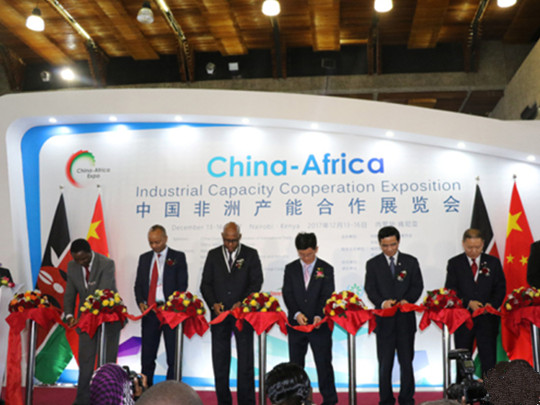
The inaugural China-Africa Industrial Capacity Cooperation Expo, which concluded in Kenya's Nairobi on Saturday, has seen a strong interest in Sino-African industrial cooperation. The maiden expo has attracted more than 50 Chinese firms drawn from diverse sectors to showcase their products and services. It also featured interactive sessions between Chinese and African firms keen to forge partnerships. Adan Mohamed, Kenya's Cabinet Secretary for Trade, Industry and Cooperatives, said the Nairobi expo reinforced the critical role of China to advance industrial progress in Africa. "The China-Africa forum happening for the first time on the African continent symbolizes the confidence China has on Africa and its desire to deepen that partnership to a higher level," Mohamed said. At the four-day event, African officials also participated in roundtables aimed at showcasing investment opportunities in their home countries to Chinese investors. Managing Director of Kenya Investment Authority Moses Ikiara said the expo offered a platform for both sides to explore new partnerships that can unleash mutual benefits. "We hope African countries will be able to tap into China's strength in areas of technology, manpower and finance to develop a strong manufacturing base," Ikiara remarked. He added that implementation of China's Belt and Road Initiative will spur industrial progress in Africa while modernizing the continent's economies. The expo has attracted delegations from 30 African countries that were keen to gain understanding of China's manufacturing prowess. Aschalew Tadesse, Investment Promotion Team Leader at Ethiopia Investment Commission (EIC), said the expo was held at an opportune moment when African countries were keen to harness China's expertise, capital and technological edge to establish robust industrial parks. "Chinese investments in our priority sectors like manufacturing, infrastructure and agro-processing are timely to help drive economic growth and create employment for skilled youth," said Tadesse. Chinese investors who participated in the Nairobi expo expressed optimism about emerging opportunities in Africa. Qiu Fan, Sales Director of Shenzhen-based Romer Environmental Protection, said Africa presents new opportunities for Chinese investors thanks to rising purchasing power occasioned by strong economic growth. Qiu said his company, engaging in sea water desalination and borehole water purification, has received orders from Kenyan clients wishing to purchase water treatment technologies to deal with water-borne diseases. "We have already ventured into four African countries and are confident our returns on investment will be guaranteed," Qiu told Xinhua. "We received orders from large companies and individuals who expressed confidence in our water purifiers. There is a possibility of setting up a factory in Kenya in the near future," said Qiu. Jiang Xuejun, chief of the Office for Asia and the Pacific at the International Trade Centre (...
Copyright © 2026 D&S Automatic Co.,Ltd.. All Rights Reserved.

IPv6 network supported